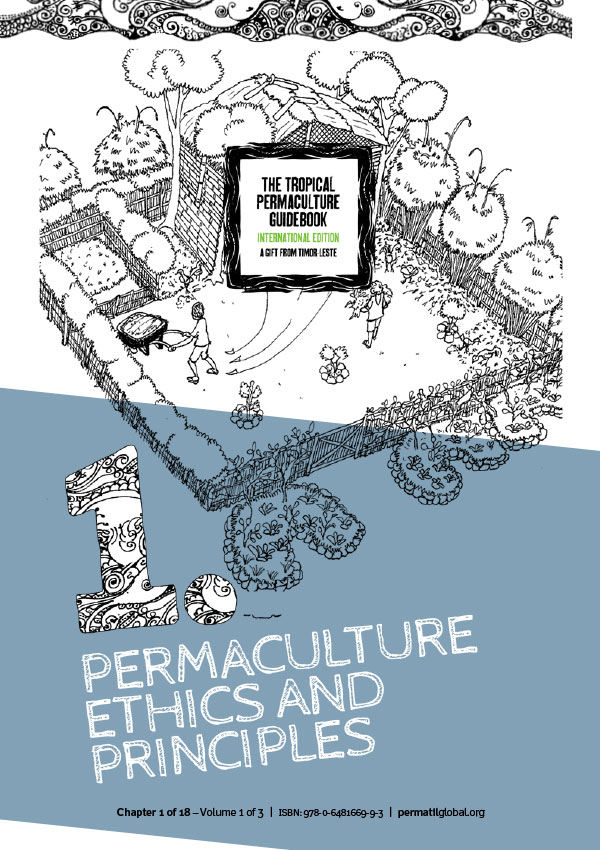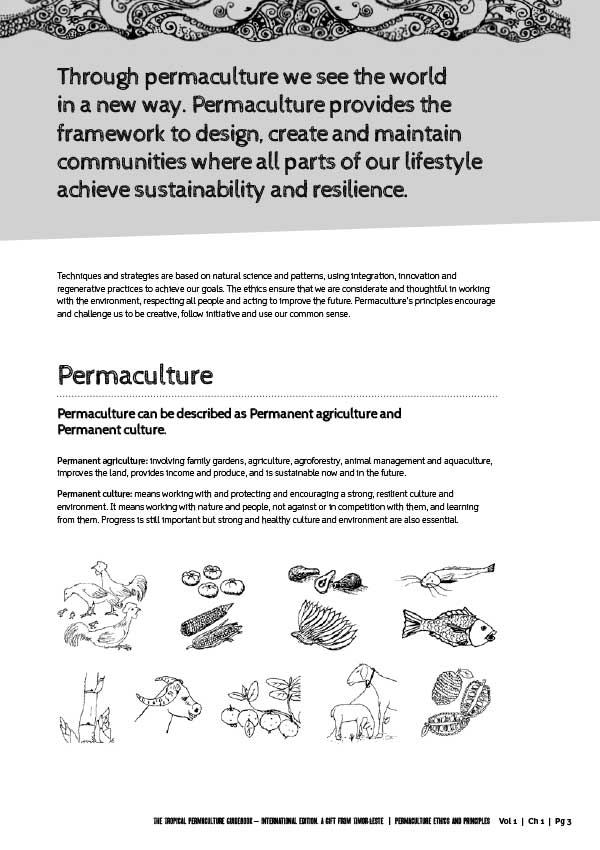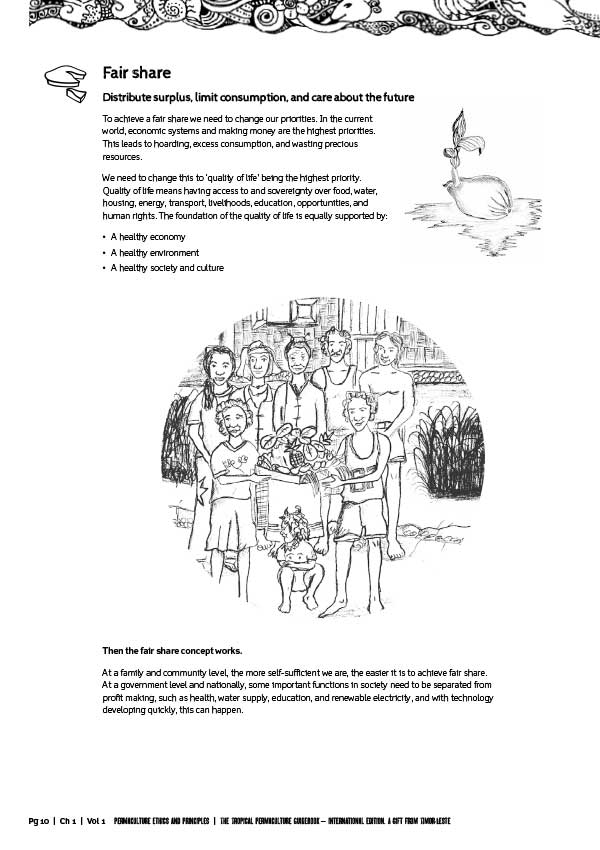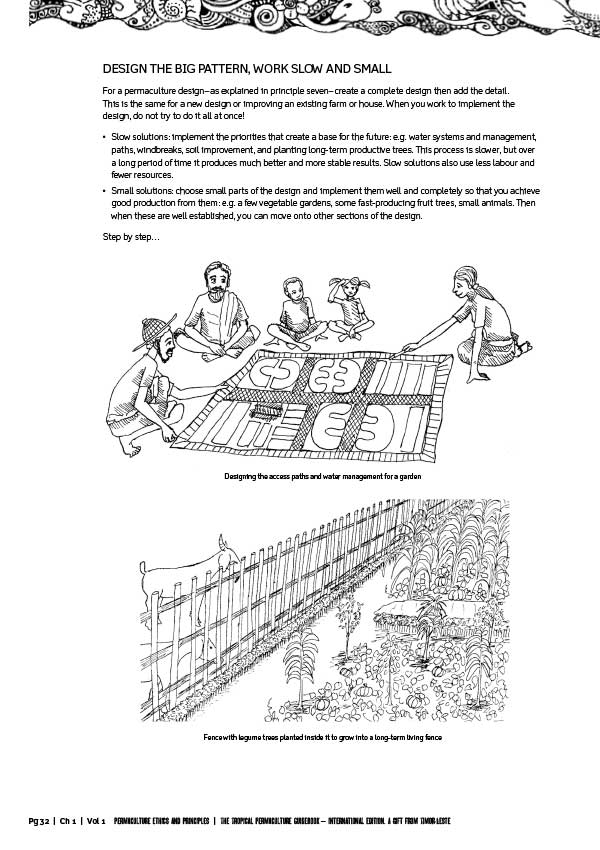Chapter 1. Permaculture ethics and principles
44 pages
Through permaculture we see the world in a new way. Permaculture provides the framework to design, create and maintain communities where all parts of our lifestyle achieve sustainability and resilience… more
This chapter is available in two sizes:
4.3MB (slow internet connection)
8.4MB (fast internet connection)
Through permaculture we see the world in a new way. Permaculture provides the framework to design, create and maintain communities where all parts of our lifestyle achieve sustainability and resilience. Techniques and strategies are based on natural science and patterns, using integration, innovation and regenerative practices to achieve our goals.
Permaculture’s ethics ensure that we are considerate and thoughtful in working with the environment, respecting all people and acting to improve the future:
- Earth care – care for the earth and all that live on it
- People care – equality, respect, and opportunity
- Fair share – distribute surplus, limit consumption, care for the future
Permaculture’s principles encourage and challenge us to be creative, follow initiative and use our common sense. They are a guide for creating permaculture designs and implementing permaculture strategies and techniques.
Contents include:
The ethics of permaculture
- Earth care
- People care
- Fair share
The design principles of permaculture
- Observe and interact
- Catch and store energy
- Obtain a yield
- Apply self-regulation and accept feedback
- Use and value renewable energy and resources
- Produce no waste
- Design from pattern to detail
- Integrate rather than segregate
- Use small and slow solutions
- Use and value diversity
- Use edges and value the marginal
- Creatively use and respond to change






